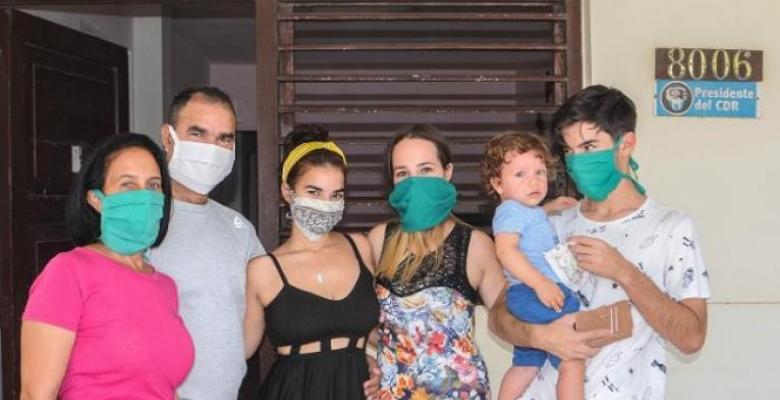New Code, another support to the Cuban families
especiales

It must be coined families, in plural, as the family made up of mom, dad, child, so beautifully pictured in fairy tales, is by no means a generality.
In Cuba, like elsewhere in the world, does not exist a single type of family. Families have now evolved into diversity and so the new family code aims to reflect it. In recent days, the President of the Republic mentioned it in a meeting held with lawmakers and other authorities.
It is not coincidence that the country’s leadership, amid these hard times we are living in, has devoted time to this issue, highlighting the importance of this vital nucleus for the life of all Cubans, and this new draft regulatory document is a full-fledged sign of this conviction.
As so was the Cuban President pleading for “a modern Family Code, which meets all constitutional precepts and really constitute a step forward in the concept of family in Cuba.”
Such is the importance given to the new Family Code in Cuba that its draft bill will be brought up to debates and referendum.
And the core element of these changes is not just same-sex marriages.
This is only a thread within the huge tapestry that family issues cover, which include the whole society.
Cuba’s Minister of Justice, Oscar Silvera Martínez, pointed out, in the aforementioned meeting, that 21 critical issues were found in previous studies and researches. And they are related, among other things, to marriage and common-law marriage, the issues of filiation, parental relationships as well as child-caring institutions.
Doing Justice
The drafting of this new code —whose draft bill is well advanced, according to Silvera— is not someone’s initiative. It responds to a constitutional mandate and thereby accepted, responsibly and committed to science and to the international laws ratified by Cuba and of course.
There is no doubt, the new family code is paramount. But in fairness, we must acknowledge that the 1975 Code — yet in force— was one of the most advanced of its time to the point that it served as a reference for others drafted in Latin America.
The 1975 Code met the needs of that time especially their provisions set for the equality of men and women. It had a huge impact in the Cuban society at the time.
Blas Roca, who chaired Cuba’s National Assembly of the People’s Power at the time, in a ceremony presided over Commander in Chief Fidel Castro, handed out the first copy to Vilma Espín, President of the Federation of Cuban Women (FMC) back then and was one of the leading authors of that legal provision well ahead of its time.
Translated by Sergio A. Paneque Díaz / CubaSí Translation Staff













Add new comment